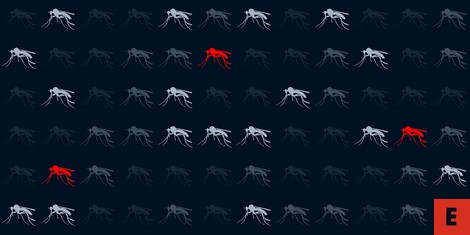Your podcast discovery platform
Curious minds select the most fascinating podcasts from around the world. Discover hand-piqd audio recommendations on your favorite topics.

piqer for: Globalization and politics Global finds
Freelance journalist based in Istanbul. Keeping an eye on Turkish politics and development.
What Can Technology Do In The Fight Against Mosquitoes?
Mosquitoes are one of the world's most efficient vectors of disease – malaria, dengue fever, Zika virus – and climate change is only contributing to this situation.
The only way to fight this – until now – was to make it difficult for mosquitoes to breed, and distribute nets and pesticides.
However, although these methods have reduced the cases of malaria, they are not infallible. Luckily, technology can help.
This piece is a review of different projects in which technology plays a very relevant role in the fight against malaria and other diseases.
For example, Project DiSARM aims to give elimination teams on the ground the power of prediction. Analyzing data on elevation, rainfall, temperature, vegetation, and historical outbreaks, it can produce risk maps of infected areas and predict when the disease will emerge.
The analysis is not new, but now the process has been simplified, and it can be done without external help.
Also, new experiments are trying to use smartphones to identify species and get in touch with locals.
Another approach is targeting mosquitoes directly, rather than the places where they breed, through genetic engineering.
A very engaging piece, probably not for hypochondriacs.
